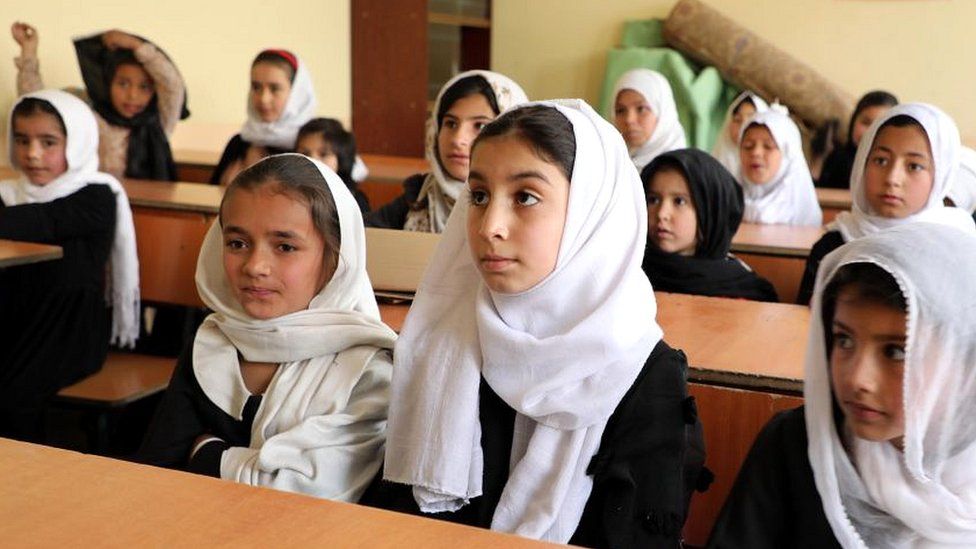 Image source, Getty Images
Image source, Getty ImagesThe World Bank suspended four projects in Afghanistan after the Taliban banned girls from going back to school.
Improving education, health and agriculture were some of the aims of the projects.
The bank said earlier that they had a strong focus on ensuring that girls and women benefited from the support.
Last week, the Taliban reversed their decision to allow the schools to open.
The Taliban said schools would only reopen after a decision was made about uniforms for female students.
The move has drawn international condemnation and on Saturday a group of people gathered near the Ministry of Education to demand that the schools be reopened.
The World Bank wanted to give women and girls more access to services in Afghanistan.
The Afghanistan Reconstruction Trust Fund was frozen last year after the Taliban took control of the country.
The executive board of the World Bank approved a plan to use more than $1 billion from the fund to support urgent needs, including those in education, agriculture and health.
The money would not be given to the Taliban, but would instead be distributed through United Nations agencies and aid groups.
The bank said in a statement on 1 March that the ARTF donors will decide on four projects of approximately $600m to support urgent needs in the education, health, and agriculture sectors.
The $600m will be supplemented with additional allocations from the ARTF as conditions allow.
The phased approach is designed to be flexible and adaptive, as the situation on the ground remains fluid.
The projects will only be resumed when the bank is confident that it can meet its goals.
On Friday, a joint statement by officials from 10 countries, including the US and UK, described the Taliban's actions as profoundly disturbing.
The Taliban were scheduled to have meetings with the US State Department.